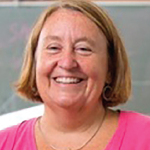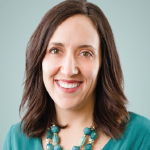
Africa Studio / shutterstock.com
It may not take a village, but when it comes to providing stellar care to rheumatology and musculoskeletal patients, it definitely takes a team. To ensure all rheumatology professionals are thoroughly prepared to serve their patients’ needs in a personalized manner, there is the ARP—the Association of Rheumatology Professionals.
The ARP, the interprofessional division of the ACR, focuses on advancing the mission of the College by providing interdisciplinary team members with access to specialized education, scientifically sound resources and a diverse network of rheumatology professionals from around the globe. The ARP serves more than 20 disciplines within rheumatology, including nurses, nurse practitioners, physician assistants, pharmacists, physical therapists and occupational therapists. Through volunteerism, each of these disciplines lends their voice to help the ARP engage, modernize and grow.
In return for their dedication and willingness to serve the College and the rheumatology specialty, ARP members receive unquantifiable benefits, such as professional and leadership development and more.
Here, The Rheumatologist talks with two volunteers on the Membership and Nominations Committee, both of whom have found a robust professional home within the organization.
Nadine M. Fisher, EdD, is director of the Rehabilitation Physiology Laboratory and the Rehabilitation Science PhD program in the Department of Rehabilitation Science at the State University of New York, University at Buffalo.
Laurie Hughell, PA-C, MPH, is a clinician at the Iowa Arthritis and Osteoporosis Center in Des Moines and adjunct professor at Des Moines University.
The Rheumatologist (TR): How did you get involved with volunteering for the ARP?

Dr. Fisher
NF: I became an ARP member 25 years ago and eventually got involved with volunteering after someone approached me at an annual meeting. I had just presented my dissertation research on osteoarthritis and was honored to be invited; I recall feeling welcomed into the fold.
Attending the annual meeting can be intimidating for young professionals just starting out because you see people on the podium whose papers you have read and then can actually meet them. But the individuals who encouraged me to get involved were so supportive that it all went very smoothly.
LH: I became involved with this multifaceted organization when someone recommended me to serve on the Government Affairs Committee, a subject area on which I had minimal prior knowledge. Although it was a steep learning curve, I enjoyed hearing more about the governmental influence on medicine and being able to lobby for rheumatology in D.C.
TR: What have been the most rewarding—and challenging—aspects of volunteering?
NF: The most rewarding aspect of devoting time to the ARP is that I have been exposed to a wonderful breadth of different perspectives on rheumatologic and musculoskeletal care. Each of the College’s committees provides volunteers the chance to see ‘behind the curtain’ and to walk away with a nuanced comprehension of how our field works and what pushes it (us) further.
On the challenging side, it is indeed daunting to just jump into something you know little about. For example, when I was asked to join the Membership and Nominations Committee, I told them I had no idea how such a group functions. ‘We’ll teach you!’ was their enthusiastic reply. They were supportive throughout my entire ‘onboarding’ and our group quickly coalesced and began addressing our tasks in a collaborative fashion.

Ms. Hughell
LH: For me, the most rewarding aspect of being an ARP volunteer is that I have gotten to know the various experiences, backgrounds and opinions of health professionals who practice all over the country. I have met wonderful people through the ARP who have taught me so much and have become dear friends. I think my most interesting experience was being on the planning committee for the annual meeting and collaborating with other health professionals to plan sessions. It has, however, been more challenging to volunteer since the COVID-19 pandemic began. Because we are not traveling, my committee work is done remotely, thus it is harder to synergize as a committee.
TR: What type of mentorship have you received for developing leadership skills?
NF: While I was initially going to pursue leadership opportunities with the ARP, it was the time when I was going through tenure and my advisors said, ‘Now is not the time to get involved in that.’ (I do regret following their advice.) The way they are structuring the leadership track at the ARP has only improved and is very transparent and supportive. If a volunteer has leadership aspirations, there is no shortage of people who are willing to talk, help determine the best approach to a given situation and provide clear guidance on what is needed.
LH: Although I have not been involved in formal mentoring through the ARP, over the years the leadership has encouraged me to get involved in a variety of opportunities that would stretch me in a professional manner. As such, I have undertaken activities that I otherwise would not have, such as editing rheumatology curricula.
TR: How difficult/easy was it to volunteer with the ARP?
NF: Extremely easy. Even if you are undecided as to whether you want to volunteer, I recommend filling out the form and ranking your committees of interest. When someone from the ARP calls you for an initial conversation, then they may tell you things that open up your thought process about the benefits of volunteering for a given committee. And rest assured there is a lot of outreach along the way so you won’t blindly volunteer for something.
Being on a committee, you are surrounded by people who communicate in a professional manner and who are accepting of opposing viewpoints. They are accustomed to compromise and understand the way to reach a consensus via teamwork.
LH: I found the process of volunteering to be a smooth one, with ample support and detailed guidance from members who had encountered similar issues on prior occasions. Committee chairs have always been helpful in guiding committee members on what needs to be done.
TR: Why do you value volunteering?
NF: Frankly, the members are wonderful, and the staff is astonishingly organized. For example, at this year’s Membership and Nomination Committee, they had any information required at their fingertips—there was no, ‘We’ll get back to you.’ Importantly, they maximize their efficiency because they realize that volunteers have primary jobs, and they want to make it as easy on us as possible to continue to volunteer.
As an ARP volunteer there is an ongoing and stimulating exchange of knowledge that I would not have access to if I did not donate some of my time to the organization. It’s a great way to learn what other types of practitioners are doing in the field and to ask questions in an informal way. It helps you get out of your own little ‘bubble.’
LH: Volunteering with the ARP keeps me engaged in the field of rheumatology and dedicated to rheumatology as a physician assistant. I would say that this work had enhanced my sense of professional pride—I am proud of the organization, the people and the knowledge I have gained.
TR: What advice would you give to new members hoping to get involved?
NF: I would say to ease your way in, perhaps by first participating in abstract review in preparation for the annual meeting (an easy, one-time occurrence). You can select a topic area and you will be assigned several abstracts to review and grade. Then, assuming that this goes well, you could volunteer to moderate a session. It is a straightforward process as they tell you what to do, namely, introduce people, and get the questions rolling. It is an ideal way to meet new colleagues from around the country.
Take every opportunity offered, and if you try one committee and it’s not what you expected, then try a different one. Take baby steps and you will be shocked at the unexpected benefits that come from volunteering your time.
LH: Just do it. Try things out. … Get out of your comfort zone and you will therefore grow professionally in the process. Be open-minded about being on different committees—just think how much you will learn. Volunteering at the annual meeting is a great opportunity for micro-volunteering, such as moderating sessions and topic tables.
How You Can Get Involved
ARP committee nominations are open Nov. 1–Feb. 1. All members interested in a three-year committee position or a micro-volunteer opportunity are encouraged to submit an application. Visit https://www.rheumatology.org/Get-Involved/Volunteer/Board-Committees for more information about open opportunities. Still have questions? Send an email to [email protected]. R
Elizabeth Hofheinz, MPH, MEd, is a freelance medical editor and writer based in the greater New Orleans area.


